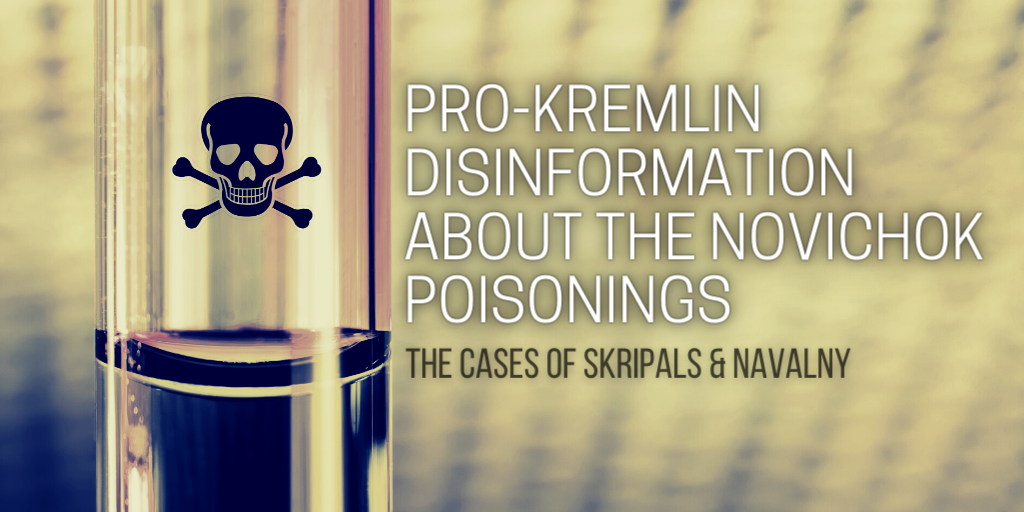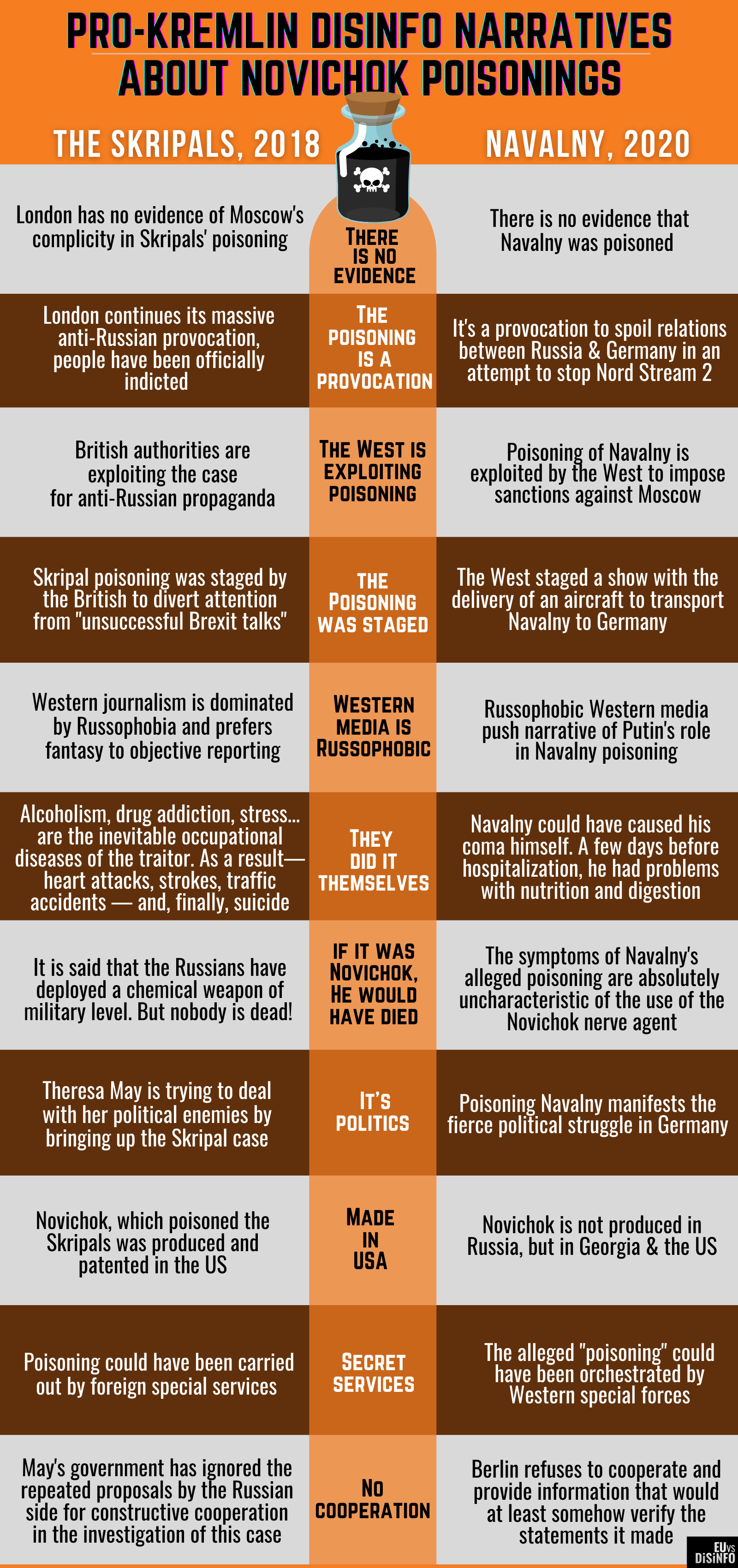
There are numerous parallels to draw, and the pro-Kremlin media has scrambled in an attempt to draw as many as possible.
In a striking case of déja vu, pro-Kremlin media is seeking to muddy the waters surrounding the suspected poisoning of opposition leader Alexei Navalny just like it did in 2018 with the poisoning of former Russian spy Sergei Skripal. The similarities between disinformation messages spread during both incidents are clear: in both cases, the poisonings were described as external provocations, staged by the West or by Britain to impose sanctions and create anti-Russian propaganda. Pro-Kremlin media also presents the poisonings as a sign of domestic political struggle in Germany and UK.
Such claims are coupled with the usual denial: “there is no evidence that Navalny was poisoned” or that “London has no evidence of Moscow’s complicity in the Skripals’ poisoning”. The “no cooperation” narrative also echoes similar claims: “Berlin stubbornly refuses to cooperate and provide information” or allegations that the British government ignored Russia’s constructive cooperation proposals.

As for scapegoats, pro-Kremlin media has always had interesting ideas. In both poisoning cases, they consistently blamed Western special forces and services. In the case of Navalny, pro-Kremlin media also claimed his coma was caused by a diet, (without elaborating on the special service where the dietologist works). As for the Skripal case, alcoholism, drug addiction, poor health and eventually suicide were described as occupational diseases for ex-spies. Plain and simple, and nothing to do with special services in this case!
In the same attempt to clear the image, pro-Kremlin media was and still is stating that Novichok is produced in the United States. In what could also appear as veiled criticism of American manufacturing quality, pro-Kremlin media also claims that Novichok usually causes convulsions and death, not coma. And after all, “what kind of military poison is it if nobody died?”
In addition to the repetitive and dismissive nature of pro-Kremlin disinformation, these narratives also highlight a certain lack of respect towards human life. Instead, pro-Kremlin media seems to gently push the reader towards a seat in the arena where the elite, secret services and national states are allegedly fighting for world domination. The goal of this action-packed media game seems to be gaining popular support for the home team, which is always winning despite allegedly unfair play of those in the West.
Only Russia can have military exercises
Last but not least, a Facebook post by the Russian embassy in the United States criticised military exercises in Estonia with participation of US soldiers. The US should not train in a NATO member state because it is provocative and dangerous for regional stability, so goes the argument. While these messages spread across more than 20 Russian websites, its social media engagement was marginal. Perhaps the public argument has far better appreciation of NATO’s collective defence stance than government.




